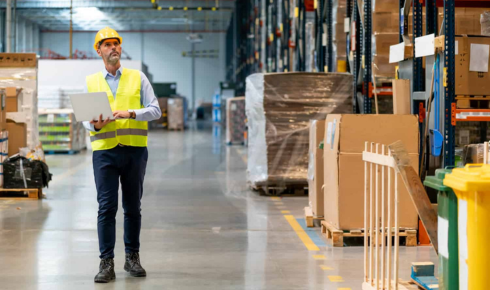In the global business landscape, smooth logistics management is the backbone of successful international trade. Companies that import or export goods depend heavily on efficient transportation, storage, and customs clearance systems to ensure timely deliveries and cost control. Two essential components that play a vital role in this process are freight forwarding and custom bonded warehousing. Together, they form a powerful logistics network that ensures goods move across borders efficiently and securely.
Understanding Freight Forwarding
Freight forwarding is the process of coordinating and managing the shipment of goods from one destination to another using multiple modes of transport such as air, sea, or land. Freight forwarders act as intermediaries between businesses and transportation services, ensuring that shipments are delivered safely, on time, and in compliance with international trade regulations.
Professional freight forwarders handle everything from cargo booking and packaging to documentation and customs clearance. They also provide value-added services such as cargo insurance, tracking, and supply chain optimization. This makes freight forwarding a one-stop solution for businesses looking to simplify their logistics operations.
The Role of Freight Forwarders in International Trade
Freight forwarders have deep expertise in global logistics, making them indispensable partners for importers and exporters. Their key responsibilities include:
- Shipment Planning: Choosing the most efficient and cost-effective routes and transportation methods.
- Documentation Handling: Preparing essential paperwork like bills of lading, commercial invoices, and certificates of origin.
- Customs Clearance: Managing the import/export compliance process to ensure smooth border clearance.
- Cargo Consolidation: Combining multiple shipments to reduce freight costs for smaller consignments.
- Tracking and Communication: Providing real-time updates and proactive communication throughout the shipping process.
With a reliable freight forwarder, businesses can avoid unnecessary delays, minimize risks, and ensure that goods reach their destination efficiently.
Introduction to Custom Bonded Warehousing
A custom bonded warehousing facility is a secure storage area approved by customs authorities where imported goods can be stored without immediate payment of import duties or taxes. These warehouses allow companies to defer duty payments until the goods are either sold or re-exported.
This system offers several advantages for businesses engaged in global trade, especially those dealing with high-volume imports or exports. Custom bonded warehouses are ideal for companies that import goods in bulk and release them gradually into the local market based on demand.
Benefits of Custom Bonded Warehouses
- Duty Deferment: Import duties and taxes can be postponed until the goods are officially cleared for domestic consumption.
- Cost Savings: By storing goods in bulk and releasing them strategically, companies can manage cash flow more effectively.
- Quality Assurance: Warehouses provide safe, temperature-controlled environments for sensitive goods like pharmaceuticals, electronics, and perishables.
- Simplified Re-Export: If goods are re-exported, no import duties are charged, saving substantial costs.
- Inventory Control: Modern bonded warehouses are equipped with advanced inventory management systems that allow real-time stock monitoring.
Custom bonded warehouses are particularly beneficial for multinational companies that import raw materials, finished goods, or spare parts, as they offer both financial flexibility and operational efficiency.
Integration of Freight Forwarding and Bonded Warehousing
When combined, freight forwarding and bonded warehousing create a powerful logistics ecosystem. Freight forwarders ensure that goods reach the destination country seamlessly, while bonded warehouses provide secure, duty-free storage until the goods are needed in the local market.
This integration helps businesses manage demand fluctuations, reduce customs-related delays, and optimize supply chain efficiency. For instance, freight forwarders can coordinate with warehouse managers to schedule timely distribution, ensuring goods are available exactly when required.
Technology in Modern Logistics
The logistics industry has embraced digital transformation, with both freight forwarders and warehouse operators utilizing advanced technologies to enhance efficiency. Real-time tracking, automated documentation, inventory software, and AI-based analytics provide complete visibility and control over cargo movement.
These innovations not only improve speed and accuracy but also help businesses predict demand, plan shipments better, and reduce overall logistics costs.
Choosing the Right Logistics Partner
Selecting a trusted logistics partner that offers integrated freight forwarding and bonded warehousing services can make a significant difference in operational performance. Look for providers with:
- Global network and experience in international shipping.
- Licensed and compliant bonded facilities.
- Advanced technology for tracking and inventory management.
- Transparent pricing and reliable customer support.
Conclusion
In an era of expanding global trade, efficient logistics solutions are crucial for business success. Freight forwarding ensures smooth transportation and compliance across international borders, while custom bonded warehousing provides financial and operational flexibility for importers and exporters.
Together, these services form the backbone of modern supply chains, allowing businesses to stay competitive, efficient, and globally connected. Partnering with a reliable logistics provider that offers both can transform your trade operations, ensuring seamless movement of goods and long-term profitability.





